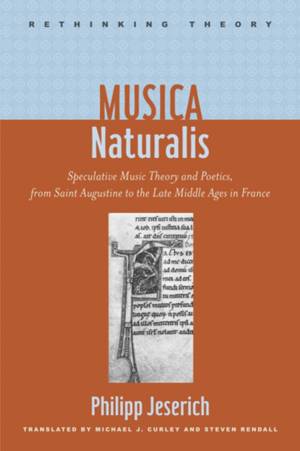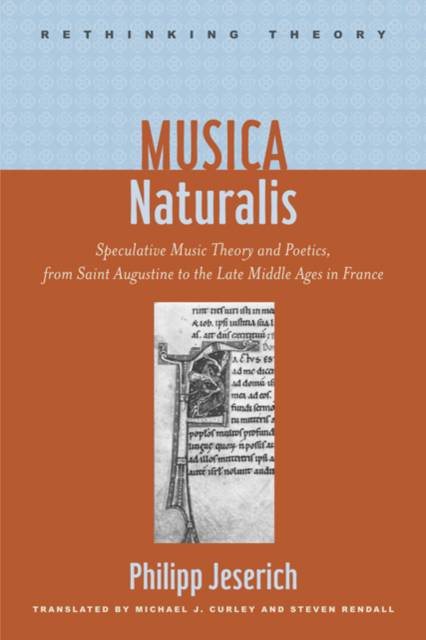
- Retrait gratuit dans votre magasin Club
- 7.000.000 titres dans notre catalogue
- Payer en toute sécurité
- Toujours un magasin près de chez vous
- Retrait gratuit dans votre magasin Club
- 7.000.0000 titres dans notre catalogue
- Payer en toute sécurité
- Toujours un magasin près de chez vous
Musica Naturalis
Speculative Music Theory and Poetics, from Saint Augustine to the Late Middle Ages in France
Philipp JeserichDescription
A critical study of the relationship between poetics and music theory in medieval culture and aesthetics.
Musica Naturalis delivers the first systematic account of speculative music theory as a discursive horizon for literary poetics. The title refers to the late medieval French poet Eustache Deschamps, whose 1392 treatise on verse writing, L'Art de Dictier, famously casts verse as "natural music" in explicit distinction to song, which Deschamps defines as "artificial." Philipp Jeserich links the significance of the speculative branch of medieval musicology to literary theory and literary production, opening up a field of study that has been largely neglected. Beginning with Augustine and Boethius, he traces the discourse of speculative music theory to the late fifteenth century, giving attention to medieval Latin and vernacular sources. Ultimately, Jeserich calls for the conservatism of Deschamps's poetics and develops a new perspective on the poetics and poetry of the Grands rhétoriqueurs.
Given Jeserich's reliance on the intellectual inheritance of late medieval French poetics and poetry, this book will appeal to English-speaking specialists of Old and Middle French, as well as scholars of the French Renaissance. It will also interest English-language medievalists of several other disciplines: intellectual historians and specialists of English, as well as scholars of Italian and Iberian literature.
Spécifications
Parties prenantes
- Auteur(s) :
- Traducteur(s):
- Editeur:
Contenu
- Nombre de pages :
- 568
- Langue:
- Anglais
- Collection :
Caractéristiques
- EAN:
- 9781421411248
- Date de parution :
- 01-11-13
- Format:
- Livre relié
- Format numérique:
- Genaaid
- Dimensions :
- 147 mm x 231 mm
- Poids :
- 907 g

Les avis
Nous publions uniquement les avis qui respectent les conditions requises. Consultez nos conditions pour les avis.






